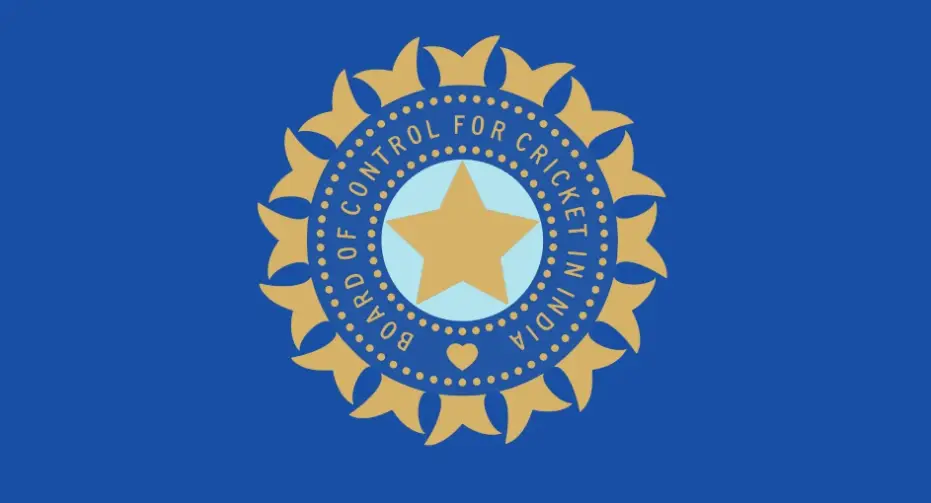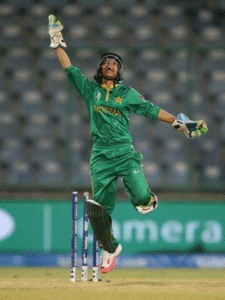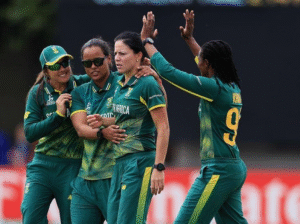
The BCCI has petitioned India’s Supreme Court to make match-fixing a criminal offence, aiming to protect the spirit of cricket and restore public confidence in the sport.
BCCI Moves to Criminalise Match-Fixing to Protect Cricket
The Board of Control for Cricket in India (BCCI), the governing and financial powerhouse of world cricket, has taken a bold legal step by petitioning the Supreme Court of India to make match-fixing a criminal offence. This landmark move is aimed at protecting the sanctity of the sport, deterring corruption, and re-establishing public trust in the game that millions of Indians passionately follow.
In court documents filed on October 14, the BCCI argued that match-fixing “constitutes a criminal offence” under the framework of cheating by deception, an existing crime under the Indian Penal Code (IPC). The board contends that current measures are insufficient to tackle corruption effectively and that a stronger, legally binding deterrent is necessary to combat the growing influence of illegal betting and match manipulation.
BCCI’s Legal Stand Against Corruption in Cricket
According to the documents submitted to the court, the BCCI stated that “the prevalence of corrupt practices in cricket matches has an adverse impact on the game and undermines the integrity of the sport.” The board emphasized that it has a moral and legal duty to protect the authenticity of cricket competitions, ensuring that players, officials, and fans can place their faith in fair play.
The BCCI’s legal argument rests on a straightforward principle: match-fixing involves deception and dishonesty, both of which fall under the definition of “cheating” in the IPC. Therefore, those found guilty of deliberately manipulating match outcomes for monetary gain should face criminal charges, just like any other offence involving fraud or deception.
This petition marks the first time that the BCCI has formally sought judicial intervention to criminalize match-fixing. The move also reflects a growing awareness within the Indian cricket ecosystem that self-regulatory measures alone cannot eliminate corruption — legal accountability is crucial to deter those who exploit the game for personal gain.
The Case Behind the Petition
The BCCI’s current appeal is linked to allegations of match-fixing during a state-level T20 cricket league held in Karnataka between 2018 and 2019. The case involved six individuals, including two players, a coach, and a team owner, accused of manipulating match outcomes.
In 2022, the Karnataka High Court dismissed the case, ruling that match-fixing was not a criminal offence under existing Indian law. However, the BCCI’s latest appeal seeks to overturn that decision, urging the Supreme Court to recognize the act as a punishable crime under the IPC.
By bringing the matter before the country’s top court, the BCCI hopes to set a precedent that will empower law enforcement agencies to investigate and prosecute those who engage in betting syndicates or manipulate matches.
Why Match-Fixing Needs to Be Criminalised
Match-fixing remains one of the darkest stains on cricket’s reputation, not just in India but worldwide. The manipulation of game outcomes for financial benefit erodes fan trust, damages player credibility, and threatens the very foundation of competitive sport.
The BCCI’s argument highlights that the damage extends far beyond the cricket field. When spectators lose faith in the fairness of matches, the commercial value of the sport suffers, affecting broadcasting rights, sponsorships, and the livelihood of players and officials.
As the world’s richest and most influential cricket board, the BCCI’s move to criminalize match-fixing could set a global precedent. If successful, India may join countries such as Sri Lanka, Australia, and the United Kingdom, where stringent anti-corruption laws already exist.
Historical Scandals That Shook Indian Cricket
India has faced several match-fixing controversies that rocked the cricketing world. The first major scandal emerged in 2000, when Delhi police exposed conversations between South African captain Hansie Cronje and Indian bookmakers during South Africa’s tour of India.
Cronje later admitted to accepting bribes and revealed that India’s then-captain Mohammad Azharuddin had introduced him to bookmakers. The revelations led to life bans for several players and permanently damaged the image of international cricket.
The scandal forced the BCCI and the International Cricket Council (ICC) to rethink their anti-corruption measures. While internal investigations and disciplinary actions followed, the lack of legal backing meant that those involved faced bans and fines — but not criminal prosecution.
The IPL 2013 Spot-Fixing Scandal
Another dark chapter unfolded in 2013 during the Indian Premier League (IPL), when players and officials from two major franchises — Rajasthan Royals and Chennai Super Kings — were found involved in spot-fixing and betting activities.
Several players were banned for violating the BCCI’s code of conduct, and both franchises were suspended for two years. The scandal drew immense public outrage, forcing the cricket board to strengthen its internal Anti-Corruption Unit (ACU).
Although the BCCI responded by introducing stricter monitoring systems, critics argue that the absence of legal penalties meant that the deterrence remained weak.
BCCI’s Anti-Corruption Code and Current Framework
In 2019, the BCCI implemented its comprehensive Anti-Corruption Code, which empowers the board to impose fines, suspensions, and lifetime bans on players or officials involved in corrupt activities.
The code emphasizes that “public confidence in the authenticity and integrity of the sporting contest is vital. If that confidence is undermined, then the very essence of cricket will be shaken to the core.”
While the code has helped the board discipline those under its jurisdiction, its authority is limited to members and affiliates. It does not extend to bookmakers, criminal syndicates, or external agents operating outside the cricketing ecosystem. This gap has prompted the BCCI to seek legal recognition of match-fixing as a crime, allowing law enforcement agencies to pursue offenders.
Comparing India’s Approach with Global Examples
Several countries have already taken decisive steps to curb match-fixing through strict legislation. Sri Lanka introduced a robust anti-corruption law in 2019, making match-fixing a criminal offence punishable by up to ten years in prison and fines of 100 million Sri Lankan rupees (approximately $333,000).
The legislation came after Sri Lanka’s then sports minister, Harin Fernando, declared that corruption in the sport was “rampant from top to bottom.” In June 2024, former Sri Lankan spinner Sachithra Senanayake became the first cricketer to be prosecuted under this law — though he continues to deny any wrongdoing.
Other cricketing nations, such as Australia and the United Kingdom, treat match-fixing as a serious criminal act under their respective gambling and fraud regulations. India, despite being the largest cricket market globally, still lacks a clear legal framework to prosecute offenders.
The Need for Stronger Legal Frameworks
Experts argue that the absence of legal consequences for match-fixing has created loopholes that embolden bookies and corrupt players. Without the fear of imprisonment, offenders often view monetary fines or sporting bans as minor setbacks compared to the potential financial rewards of corruption.
Legalizing criminal prosecution for match-fixing would enable Indian authorities to launch investigations, gather evidence, and prosecute offenders in a court of law — something that the BCCI alone cannot achieve through its internal mechanisms.
Moreover, formal legislation would strengthen India’s global image as a nation committed to clean sport. It would send a clear message that corruption will not be tolerated, regardless of a person’s status or position in the game.
Challenges and Potential Implications
Despite widespread support for criminalization, several challenges remain. Proving match-fixing in court requires extensive evidence, including communication records, financial transactions, and witness testimony. Building such cases is often complex, as betting syndicates operate across international networks.
There are also concerns about whether the BCCI’s influence could affect the neutrality of investigations. Legal experts emphasize the need for an independent sports integrity authority that operates alongside the BCCI to ensure transparency and accountability.
If the Supreme Court accepts the BCCI’s petition and declares match-fixing a criminal offence, it could set a historic precedent for Indian sports law. Such a ruling would not only empower enforcement agencies but could also lead to similar reforms in other sports like football, kabaddi, and hockey.
A Turning Point for Indian Cricket
The BCCI’s appeal to criminalize match-fixing represents more than a legal battle — it’s a moral crusade to safeguard cricket’s spirit. As the governing body of the most passionate cricketing nation on earth, the BCCI recognizes that preserving the game’s credibility is paramount to its continued growth.
The move signals a shift in attitude: from treating match-fixing as a disciplinary matter to viewing it as a crime against the sport and its fans. If successful, this effort could redefine the way corruption in sports is tackled in India.
The case is still ongoing, but it has already sparked a wider conversation about accountability in Indian cricket. Fans, former players, and analysts have welcomed the initiative, hoping it marks the beginning of a cleaner, more transparent era.
Conclusion: Protecting the Spirit of the Game
Cricket in India is more than a sport — it’s a national passion, an emotion that unites millions. Yet, every fixing scandal chips away at that trust, leaving behind disillusioned fans and tarnished memories.
The BCCI’s petition to the Supreme Court could become a pivotal moment in restoring the integrity of the game. By pushing to make match-fixing a criminal act, the board is acknowledging that the future of cricket depends not just on performance but on principles.
If the court accepts the BCCI’s argument, India could emerge as a global leader in sports integrity reform. More importantly, it would reaffirm a fundamental truth: cricket’s magic lies not in manipulation, but in the honesty, competition, and spirit that have made it the heartbeat of millions.
Internal Linking Suggestions:
- Link “BCCI match-fixing case” to a related legal analysis article.
- Link “Indian Premier League 2013 scandal” to your cricket corruption timeline post.
- Link “Anti-Corruption Code” to a separate blog explaining BCCI’s disciplinary measures.
- Link “Sri Lanka match-fixing laws” to a comparative article on global cricket regulations.



